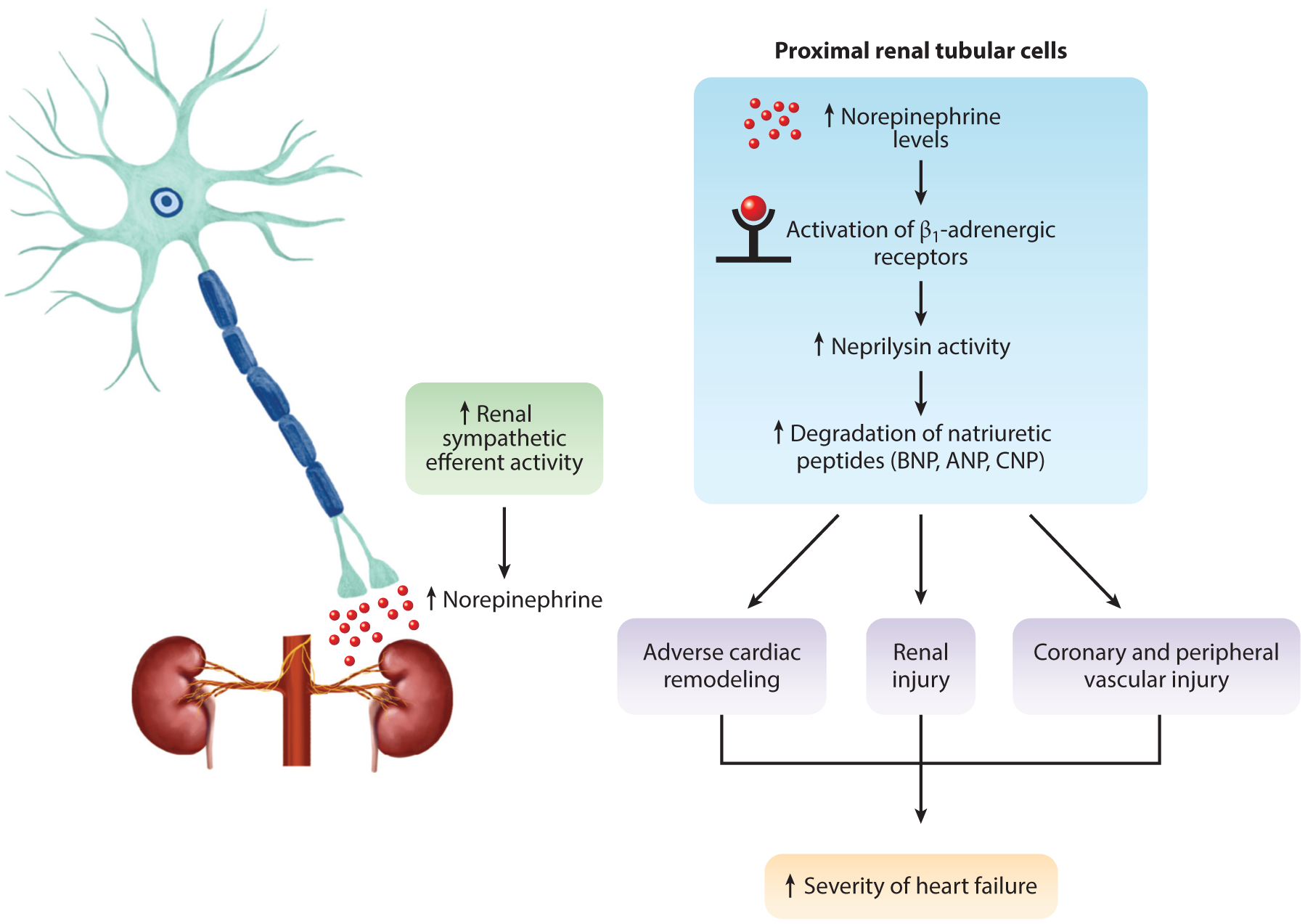Figure 4.

Proposed regulation of renal neprilysin activity in the kidney in relation to heart failure. In the presence of increased sympathetic nerve activity to the kidney in heart failure, Polhemus et al. (17) and Sharp et al. (18) propose that overactive catecholamine β1-adrenergic signaling in the proximal renal tubular cells drives downstream posttranslational modification, which increases neprilysin activity. With increased activity, there is a significant increase in natriuretic peptide degradation, resulting in further adverse cardiac remodeling, potential renal injury, and vascular dysfunction synergizing to exacerbate heart failure severity. The application of a novel therapeutic intervention, such as renal denervation, inhibits norepinephrine signaling and attenuates neprilysin activity and natriuretic peptide degradation, providing remote cardioprotection. Abbreviations: ANP, atrial natriuretic peptide; BNP, B-type natriuretic peptide; CNP, C-type natriuretic peptide.
